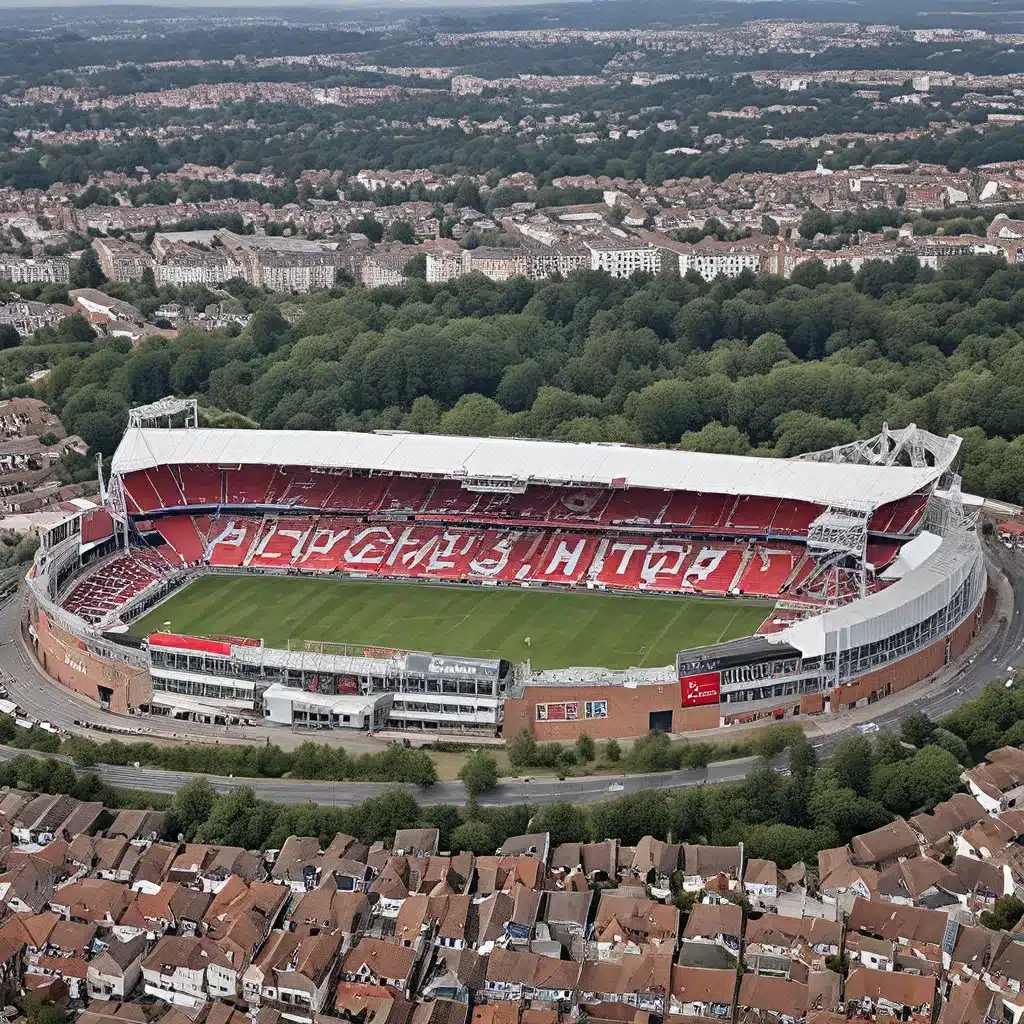
A Historic Landmark in the Heart of Bristol
Ashton Gate is a soccer stadium located in Bristol, England, which has served as the home ground of Bristol City Football Club since its construction in the late 19th century. The stadium’s history is deeply intertwined with the city of Bristol and the passionate fan base of the local club, making it a true icon of the region. From its humble beginnings to its current status as a modern, multi-purpose venue, Ashton Gate’s evolution reflects the changing face of professional sports in the United Kingdom.
The stadium’s origins can be traced back to 1887, when Bristol South End Football Club, the precursor to Bristol City, first began using the site as their home ground. Initially, the facility was little more than a simple field with rudimentary terracing for spectators. However, as the popularity of the sport grew in the late Victorian era, the need for a more substantial and accommodating venue became increasingly evident.
Expansion and Modernization
In the early 20th century, the stadium underwent a series of expansions and renovations to keep pace with the growing demands of the club and its supporters. The most significant of these projects was the construction of the Ashton Gate Stand in 1914, which provided covered seating for the first time and helped to solidify the stadium’s place as a premier sporting destination in the region.
As the decades passed, Ashton Gate continued to evolve, with additional stands and improvements being made to enhance the fan experience and accommodate the changing needs of the game. In the 1990s, the stadium underwent a major redevelopment that saw the construction of the Lansdown Stand, the Atyeo Stand, and the Wedlock Stand, transforming the venue into a modern, all-seater facility.
A Multipurpose Arena
Today, Ashton Gate is more than just a soccer stadium; it has become a multipurpose arena that hosts a variety of events and activities. In addition to being the home of Bristol City FC, the stadium also serves as the home ground for Bristol Rugby Club, a professional rugby union team. The venue’s flexible design and state-of-the-art facilities make it an attractive destination for concerts, conferences, and other large-scale events.
One of the standout features of Ashton Gate is its seating capacity, which currently stands at 27,000. This impressive figure has been achieved through a combination of careful planning, strategic expansions, and a deep understanding of the needs and expectations of modern sports fans. The stadium’s design and layout have been carefully crafted to provide an immersive and enjoyable experience for all who visit, whether they are attending a soccer match, a rugby game, or a special event.
Embracing the Future
As Bristol City FC and Bristol Rugby Club continue to grow and evolve, Ashton Gate is poised to play a crucial role in their future success. The stadium’s management team is constantly exploring new ways to enhance the fan experience, improve the venue’s sustainability, and ensure that it remains a vital part of the local community.
One of the stadium’s most recent initiatives has been the implementation of a comprehensive sustainability program, which aims to reduce the venue’s environmental impact and promote more eco-friendly practices. This includes measures such as the installation of solar panels to generate renewable energy, the introduction of recycling initiatives, and the implementation of energy-efficient lighting and water management systems.
A Legacy of Passion and Pride
At the heart of Ashton Gate’s story is the unwavering passion and pride of the Bristol City and Bristol Rugby fans. These dedicated supporters have played a vital role in shaping the stadium’s history, cheering on their teams through thick and thin and helping to create an atmosphere that is truly unique to the venue.
The stadium’s rich heritage and its importance to the local community are reflected in the countless stories and memories that have been created within its walls over the decades. From thrilling match-day experiences to cultural events and celebrations, Ashton Gate has become a cherished part of Bristol’s identity, a place where the city’s sporting and cultural traditions converge.
As Ashton Gate continues to evolve and adapt to meet the changing needs of the modern sports and entertainment landscape, its core identity as a beloved local landmark and a bastion of the city’s sporting spirit will undoubtedly remain at the heart of its enduring legacy.

